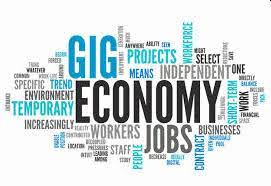http://sharetipsinfo.comJust get registered at Sharetipsinfo and earn positive returns

Confederation of Indian Industries urges policymakers to tackle two-speed recovery among other things Growth appears to be limping back after COVID battered economies around the world, thanks to policy support from governments as well as vaccination drives.
 However, to ensure that the recovery is even and sustained, policymakers need to tackle seven key issues going by a blog post from the Confederation of Indian Industries (CII).
However, to ensure that the recovery is even and sustained, policymakers need to tackle seven key issues going by a blog post from the Confederation of Indian Industries (CII).Here’s a detailed look at them:
Tackle two-speed recovery
Recovery is two-speed with widespread differences, both inter-country and intra-country. The developed world, with much higher fiscal support and access to vaccines, has recovered much faster than developing and low-income countries. Within countries, contact-based sectors have been slower to pick up. The more vulnerable sections of society bore greater brunt of loss of jobs and livelihoods. Economic realities of a two-speed recovery have exacerbated inequalities making them stark and intense as never before. To address this, inclusion will have to be a key component of all policymaking.
Institutionalise pandemic preparedness
COVID is not over yet. Concerns caused by the recent mutation show how fragile the recovery is. Also, COVID is not the last pandemic that the world will have to deal with. Given the severity of the health and economic crisis and the scale of loss of lives that pandemics can cause, countries should institutionalise pandemic preparedness.
Gradual easing of monetary policy
Led by the United States, governments and central banks across the world have been literally printing money leading to a surfeit of liquidity. However, this cannot continue forever, and the hope is that the withdrawal of this policy would be gradual. The process will place the dynamics of inflation, monetary policy, fiscal deficits and interest rates centre stage in the global economic thinking, and countries should start preparing for this beginning 2022.
Bring down emissions
The challenge of climate change requires urgent and substantive action by all. The earth’s carbon dioxide levels are the highest in the last three million years. Therefore, it is crucial to bring down emissions substantially within this decade itself to be able to achieve the goal of limiting temperature increases to 1.5 degrees.
Address disruption from tech adoption
The pandemic has fast-tracked technology adoption, which brings with it the issues of disruptions, dislocations, and friction. Policymaking needs to address these challenges.
Supply chains must prepare for black swans
The pandemic has caused unprecedented supply chain shocks leading to global shortages such as that of semiconductors. These shortages have affected businesses across the globe, due to their dependence on the complex just in time global supply chains. The shortages led to lower capacity use in user industries, in spite of demand being there. This in turn impacted investment and capacity expansion decisions. Economies need to deal with these shortages and plan for mitigating the impact of any such future global events on supply chains.
Implementing Universal Basic Income
In a two-speed world, economic policy should re-visit the idea of Universal Basic Income (UBI) as a social protection tool and a demand stabiliser. While the implementation would be easier for the developed world with resources available at its disposal, developing countries like India also need to start deliberating on some form of UBI.